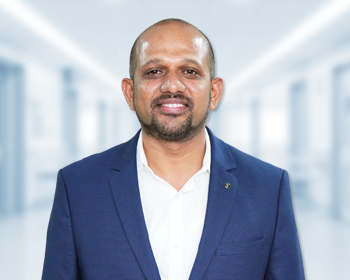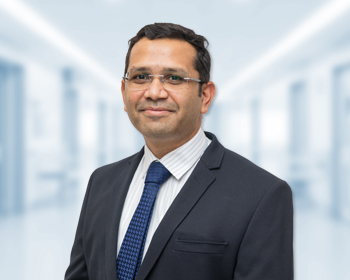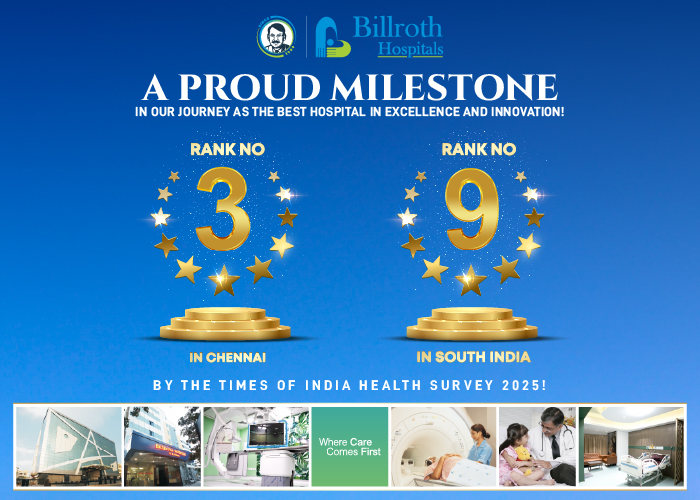- Overview
- Our Doctors
Department of Organ Transplant
The Department of Transplant Medicine plays a pivotal role in the healthcare system, offering hope and a renewed lease on life to individuals suffering from end-stage diseases. We at Billroth Hospitals, through a combination of skilled professionals, cutting-edge research, and compassionate care, contribute to the poor and needy who are suffering from such end-stage diseases.
Liver Transplant Programme
The Department of Transplant Medicine plays a pivotal role in the healthcare system, offering hope and a renewed lease on life to individuals suffering from end-stage diseases. We at Billroth Hospitals, through a combination of skilled professionals, cutting-edge research, and compassionate care, contribute to the poor and needy who are suffering from such end-stage diseases.
The primary focus of the department is to evaluate potential transplant candidates, ensuring that individuals meet the necessary criteria for a successful transplant. This involves thorough medical assessments, including imaging, blood tests, and consultations, to determine the patient’s overall health and suitability for the procedure.
The surgical team within the department is responsible for performing liver transplant surgeries. These highly complex procedures involve the removal of a diseased liver and its replacement with a healthy donor liver. Surgeons work meticulously to ensure precision and minimise postoperative complications.
Hepatologists in the department manage pre- and post-transplant medical care, overseeing patients’ conditions and providing specialised treatments to optimise their health before and after the transplant. Post-transplant, patients receive ongoing care to prevent organ rejection and manage potential complications.
Nurses and support staff play a crucial role in patient care, offering both physical and emotional support throughout the transplant journey. They educate patients on postoperative care, medication management, and lifestyle adjustments necessary for a successful recovery.
In addition to patient care, the Department of Liver Transplant is actively involved in research and advancements in transplant medicine. This includes exploring new techniques, medications, and technologies to improve transplant outcomes and enhance the overall field of organ transplantation.
Collaboration with other medical specialties is common within this department, as liver disease often affects multiple organ systems. This interdisciplinary approach ensures comprehensive care and addresses the diverse needs of transplant patients.
Heart and Lung Transplant Programme
Heart and lung transplants represent remarkable achievements in modern medicine, offering a lifeline to individuals facing otherwise fatal cardiac and respiratory conditions. These life-saving interventions involve replacing a patient’s diseased heart and/or lungs with healthy organs from a deceased donor.
Heart Transplant:
A heart transplant is typically considered for individuals with end-stage heart failure, where the heart can no longer pump blood effectively. During the procedure, the recipient’s damaged heart is removed, and the donor’s heart is connected to the major blood vessels. Careful matching of donor and recipient is crucial to minimising the risk of rejection.
Lung Transplant:
Lung transplants are undertaken for conditions such as chronic obstructive pulmonary disease (COPD), pulmonary fibrosis, or cystic fibrosis. The diseased lungs are replaced with healthy donor lungs, and the major airways and blood vessels are meticulously attached to ensure proper functioning.
Pre-Transplant Evaluation:
Before a transplant, candidates undergo a thorough assessment to determine their overall health and suitability for the procedure. This involves medical tests, imaging, and psychological evaluations. Matching the donor organ to the recipient’s body is a critical aspect of transplantation to reduce the risk of rejection.
Surgical Procedure:
Both heart and lung transplants require highly skilled surgical teams. The intricate nature of the surgery demands precision and expertise. The organs are carefully removed from the donor and transported to the recipient, where they are implanted and blood vessels are connected. The surgery can take several hours, and postoperative care is intensive.
Post-Transplant Care:
After the transplant, patients must adhere to a lifelong regimen of immunosuppressive medications to prevent rejection. Regular follow-up appointments, monitoring, and diagnostic tests are crucial to ensuring the ongoing health of the transplanted organs. Complications such as rejection, infection, and side effects of medications are closely managed.
Challenges and Considerations:
Despite their life-saving potential, heart and lung transplants pose challenges. The shortage of donor organs is a significant consideration.
Renal Transplant Programme:
Renal transplant, also known as kidney transplant, is a surgical procedure in which a healthy kidney from a living or deceased donor is transplanted into a recipient with end-stage renal disease. This procedure is a life-saving intervention for individuals whose kidneys can no longer function adequately. Thus, renal transplantation stands as a critical and effective intervention for end-stage renal disease, providing a chance for a healthier and more productive life for those in need.
The process typically begins with an extensive evaluation of both the recipient and potential donors to ensure compatibility and minimise the risk of rejection. A successful match reduces the likelihood of the recipient’s immune system attacking the transplanted organ.
Once a suitable donor is identified, the transplant surgery takes place. The surgeon places the new kidney in the lower abdomen and connects its blood vessels and ureter to the recipient’s blood vessels and bladder. Post-surgery, recipients undergo close monitoring to detect and manage any complications.
Renal transplantation offers several advantages over long-term dialysis, including improved quality of life and better overall health outcomes. However, it comes with potential risks and challenges, such as the need for lifelong immunosuppressive medications to prevent rejection.
Advancements in medical technology and immunosuppressive drugs have significantly enhanced the success rates of renal transplants. Nevertheless, the shortage of organ donors remains a significant hurdle, leading to waiting lists and challenges in timely access to transplantation.
Organ Transplant Doctors
Meet the Team – Best Organ Transplant Surgeons in Chennai







